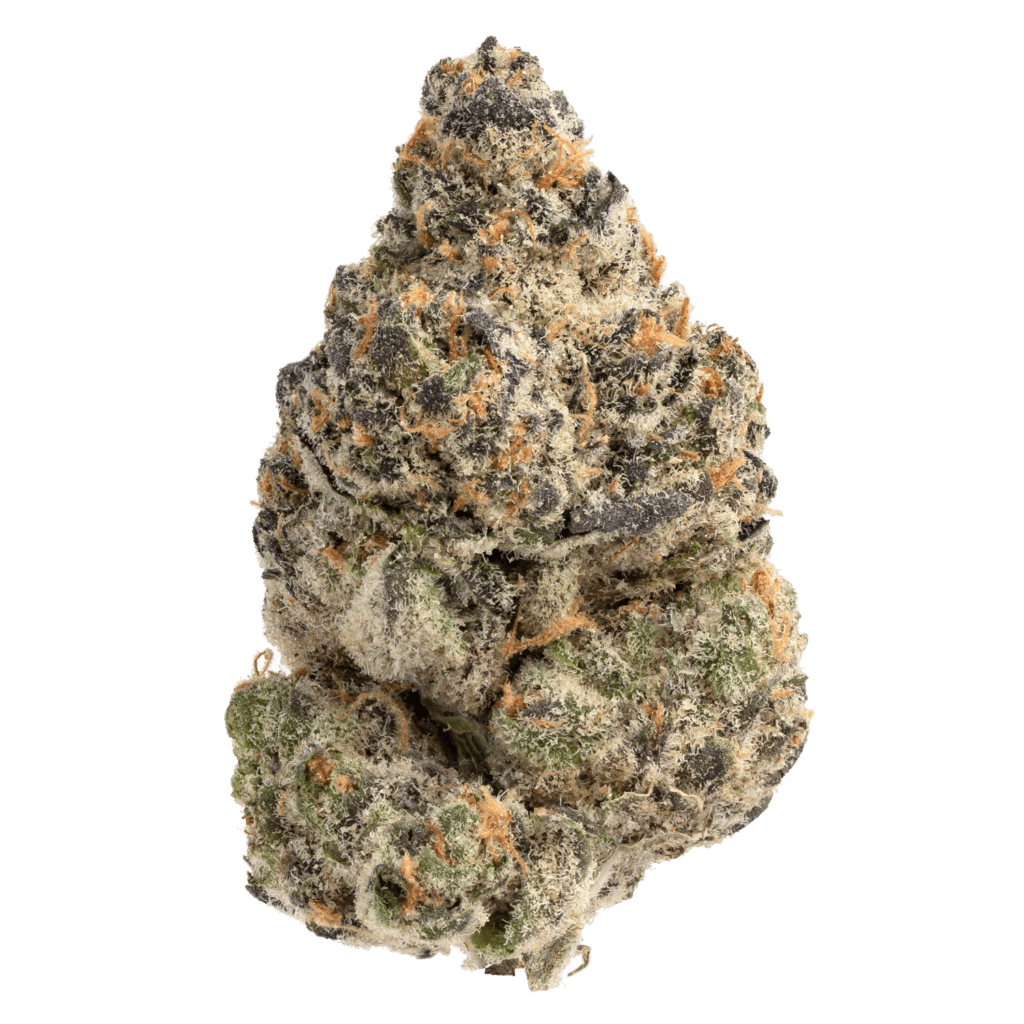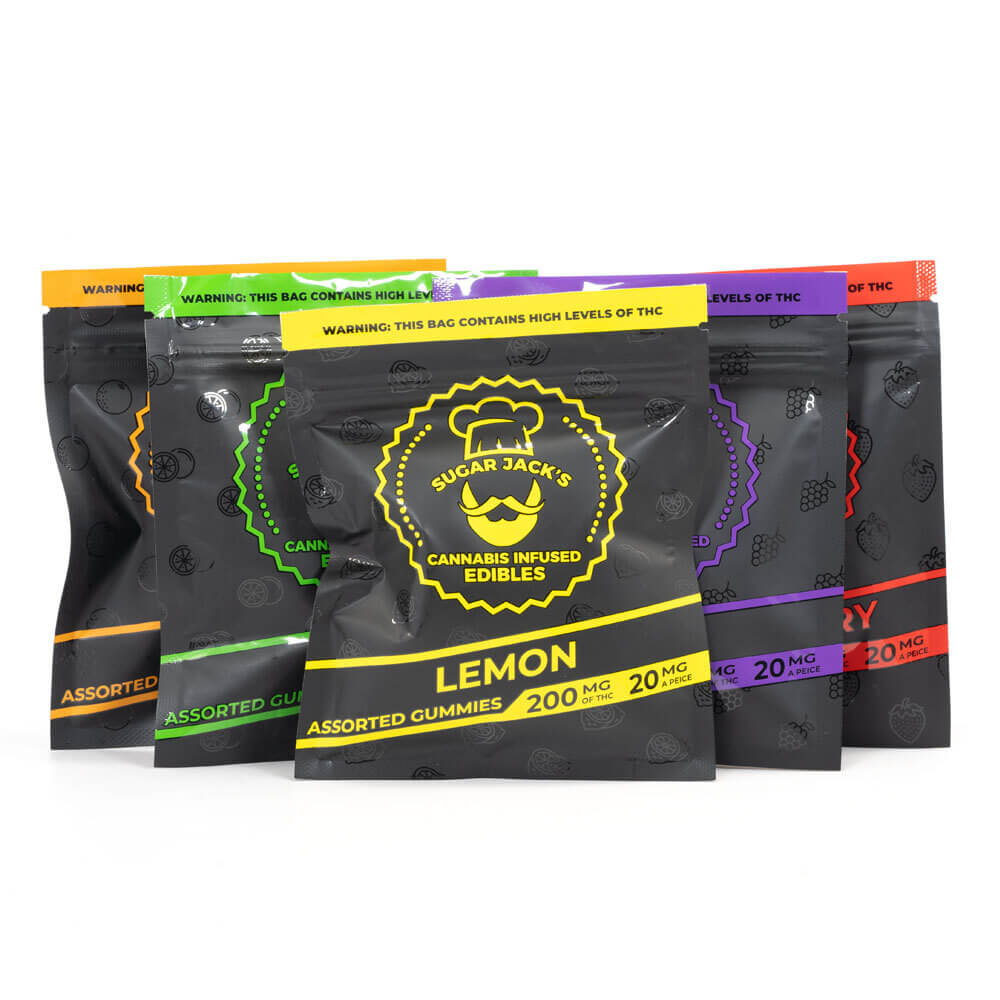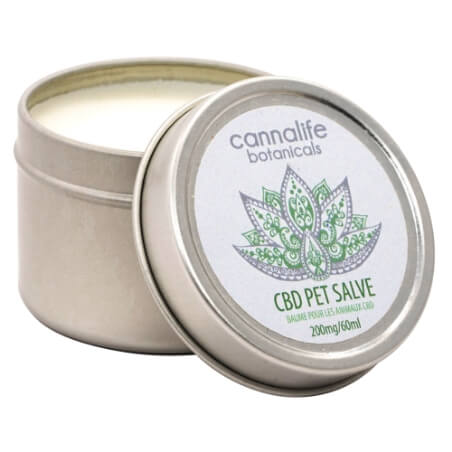No products in the cart.
Cannabis and Sleep Disorders: Does Weed Help You Sleep?
6 Mar 2023

Does weed help you sleep? Around the world, cannabis has been used as a sleep aid for decades. Today, with cannabis legalization opening up the gates for more cannabis research, the scientific community is turning to the microscope to discover just how effective weed can really be in helping us catch our much-needed beauty sleep.
So, does weed help you sleep? The short answer is yes, it can. The long answer? It depends on how, when, and what kind of cannabis you use. If you’re unsure of what the best practices are for weed and sleep, continue reading our guide and we’ll break down everything you need to know!
Does Weed Help You Sleep? – What Research Says

Researchers believe that the sleep-promoting effects of cannabinoids stem from their interactions with cannabinoid receptors in the human brain. T
HC and CBD bind to endocannabinoid receptors, transmitting messages to increase levels of adenosine (sleep-promoting compounds) and reduce the brain’s arousal system. Together, this leads to cannabis users feeling sedated and calm.
Additionally, cannabis also has several active components, including THC and CBD, that can calm and soothe its users.
While THC is usually a sedative, it also has psychoactive properties that can relieve anxiety, stress, and anxiety. In such cases, weed use before going to bed can help users fall and stay asleep longer.
Cannabidiol, or CBD, can also work as a sleep aid at higher doses. The usefulness of these two cannabinoids depends on the quantity and timing.
Both CBD and THC can also treat some chronic sleep conditions.
For example, THC may relieve symptoms of obstructive sleep apnea, decrease PTSD-related nightmares, and enhance sleep cycles. On the other hand, CBD may reduce any signs of REM sleep behaviour disorder and even excessive daytime sleepiness!
Factors Affecting Sleep and How Weed Can Help

Many people experience various sleep problems during their lifetimes, such as sleep disturbances, reduced sleep cycles, and other chronic conditions.
We have listed the main ones below:
Insomnia
A relatively common sleep disorder, insomnia makes it hard for a suffering patient to fall asleep and stay asleep. It also causes patients to wake up earlier than expected and, once awake, prevents them from falling back asleep.
Symptoms include:
- Difficulty falling asleep
- Waking up at odd times
- Waking up earlier than expected
- Restlessness and exhaustion
- Stress, anxiety, and depression
- Lack of attention
Insomnia can be caused by a variety of factors, but the most common reasons include bodily pain, daily stress, and anxiety. In situations like these, enjoying a nice relaxing smoke or a tasty edible before bed can actually help users relax and decompress!
Many indica strains and some sativa strains are effective in relieving pain and inducing relaxation. In fact, many cannabis users prefer smoking/consuming before bed exactly for these reasons!
Restless Leg Syndrome
RLS, also known as Restless Leg Syndrome, is the disorder where the patient feels the uncontrollable urge to move their legs while trying to sleep. This urge to move your legs is usually triggered because of a discomforting feeling.
It happens when you’re sitting or lying down. The constant moving of the legs eases the unpleasant feeling momentarily. The main symptom is the constant urge to move the legs.
Symptoms include
- Sensation kicks in after you begin to rest.
- Movement helps relieve the pain.
- It mainly occurs at night.
- Creeping
- Pulling
- Throbbing
- Aching
The relationship between cannabis and Restless Leg Syndrome, or RLS, is an interesting one. Currently, researchers have discovered that cannabis can be an effective treatment for RLS by modulating the neurotransmitters responsible for movement and locomotion.
Narcolepsy
Narcolepsy is a chronic sleep disorder described by overpowering daytime languor and unexpected assaults of sleep. Individuals with narcolepsy regularly think it is hard to remain alert for extensive periods, paying little mind to the conditions.
Narcolepsy, unfortunately, is a chronic condition, and there is no known cure.
But, be that as it may, meds and lifestyle changes can assist you with dealing with the indications.
Symptoms include:
- Unreasonable daytime sleepiness. Individuals with narcolepsy nod off abruptly, anyplace, whenever. You may likewise encounter diminished readiness and concentration over the day.
- Abrupt loss of muscle tone.
- Specific individuals with narcolepsy experience just a couple of episodes of cataplexy a year, while others have various episodes every day. Not every person with narcolepsy encounters cataplexy.
- Sleep loss of motion. Individuals with narcolepsy regularly experience a transitory failure to move or talk while nodding off or after waking.
- Changes in fast eye development. REM sleep is regularly when most dreaming occurs. REM sleep can happen whenever of the day in individuals with narcolepsy.
If you’re suffering from narcolepsy during the day, cannabis might actually be the cure!
A report published in 2019 in the “Journal of CNS Neurol Disord Drug Targets” argues that CBD can block daytime sleepiness that narcolepsy sufferers endure during the day, at least in animal studies!
If you plan on using weed to treat narcolepsy, be sure to focus on products that are either mostly CBD or exclusively CBD. THC used during the day can actually make you sleepier!
Effects of Long Term Marijuana-Use On Sleep
While weed can help its users fall asleep, excessive use can cause sleep problems in the long run.
For example, a BMJ Journal study uncovered that grown-ups who use weed at least 20 days during the last month were 64% more likely to sleep under six hours per night and 76% bound to sleep longer than nine hours per night.
With that being said, current psychiatry reports argue that your ability to fall and stay asleep improves with medical marijuana.
When investigating cannabis and sleep, few subjects showed slight increases in sluggish wave sleep. However, sleep quality may reduce infrequent cannabis users when they cut down on consumption.
Weed’s impact on sleep might vary depending on any mental conditions a person might be experiencing upon whether t. All in all, assuming that you have depression or anxiety, marijuana might help you sleep better if taken in low doses.
Using Cannabis For Sleep Problems – 5 Things to Know
Does weed help you sleep? Yes! As we’ve explored above, cannabis can help you fall asleep as long as it’s used properly. If you plan on using weed to fall asleep, here are 5 things you need to know:
CBD and THC Ratio
The best ratio is basic 1:1. However, if you suffer from anxiety, a 2:1 in favour of CBD is best since it can relieve anxiety without causing you to get too high. For some users, THC can actually make anxiety worse!
Using The Correct Strain
If you want to get a good night’s sleep, there are different strains to choose from. However, the best strain to use is Indica since it has couch-locking and sedating effects promoting sleep.
Examples of great indica strains to relieve stress, bodily pain, and anxiety include:
Product Format
Depending on when you plan on going to sleep, the type of product you consume can significantly affect your sleep outcomes. Smoking and vaping, for example, have an extremely fast onset of effects. In other words, you’re likely going to feel sleepy within minutes! However, these effects also last for a shorter amount of time, too, so it’s important to plan around this!
On the other hand, cannabis edibles take way longer to kick in but last a long longer, too. Thanks to a metabolite known as 11-Hydroxy-THC, cannabis edibles are better prepared to bypass the blood-brain barrier to deliver their effects. With that being said, taking too strong of an edible can also run the risk of staying high into the next day!
For the best results, we recommend using a tincture instead of a gummy or infused edible. Tinctures are dispensed under the tongue and are absorbed sublingually, allowing them to deliver their effects faster.
If you plan on using weed edibles to get some rest, be sure to start with a low dose and go slow before consuming another dose!
Does Weed Help You Sleep? Final Takeaways
Medical cannabis works as excellent sleep medicine. It promotes healthy nocturnal sleep, especially if you are looking for a short-term fix for inducing deep sleep.
For example, suppose you are experiencing poor sleep or any other conditions. In that case, cannabis use could;
- Promote better sleep
- Helps you combat insomnia and other sleep disorders
- Helps deal with chronic pain
However, under some circumstances, people that have difficulty sleeping should not opt for marijuana at all, and certainly not in the long run. Instead, you should seek professional medical advice before using weed for sleep!








